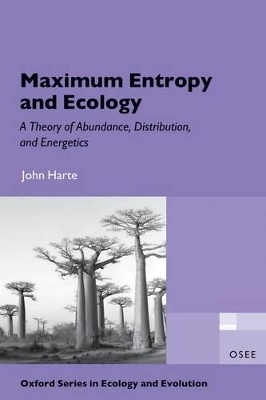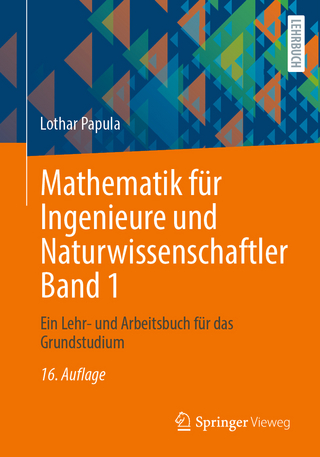
Maximum Entropy and Ecology
Oxford University Press (Verlag)
978-0-19-959342-2 (ISBN)
This pioneering graduate textbook provides readers with the concepts and practical tools required to understand the maximum entropy principle, and apply it to an understanding of ecological patterns. Rather than building and combining mechanistic models of ecosystems, the approach is grounded in information theory and the logic of inference. Paralleling the derivation of thermodynamics from the maximum entropy principle, the state variable theory of ecology developed in this book predicts realistic forms for all metrics of ecology that describe patterns in the distribution, abundance, and energetics of species over multiple spatial scales, a wide range of habitats, and diverse taxonomic groups.
The first part of the book is foundational, discussing the nature of theory, the relationship of ecology to other sciences, and the concept of the logic of inference. Subsequent sections present the fundamentals of macroecology and of maximum information entropy, starting from first principles. The core of the book integrates these fundamental principles, leading to the derivation and testing of the predictions of the maximum entropy theory of ecology (METE). A final section broadens the book's perspective by showing how METE can help clarify several major issues in conservation biology, placing it in context with other theories and highlighting avenues for future research.
John Harte is a Professor of Ecosystem Sciences at the University of California, Berkeley. Following undergraduate studies at Harvard and a doctoral degree in Physics from the University of Wisconsin, he was an NSF Postdoctoral Fellow at CERN, Geneva and an Assistant Professor of Physics at Yale. His research interests include climate-ecosystem interactions, theoretical ecology, and environmental policy. He is the recipient of a Pew Scholars Prize in Conservation and the Environment, a Guggenheim Fellowship, the 2001 Leo Szilard prize from the American Physical Society, the 2004 UC Berkeley Graduate Mentorship Award, a Miller Professorship, and is a co-recipient of the 2006 George Polk award in journalism. He is an elected Fellow of the California Academy of Sciences and the American Physical Society. He has also served on six National Academy of Sciences Committees and has authored over 190 scientific publications, including seven books.
PART I. FOUNDATIONS ; PART II. MACROECOLOGY ; PART III. THE MAXIMUM ENTROPY PRINCIPLE ; PART IV. MACROECOLOGY AND MAXENT ; PART V. A WIDER PERSPECTIVE
| Erscheint lt. Verlag | 23.6.2011 |
|---|---|
| Reihe/Serie | Oxford Series in Ecology and Evolution |
| Zusatzinfo | 60 black and white illustrations |
| Verlagsort | Oxford |
| Sprache | englisch |
| Maße | 153 x 229 mm |
| Gewicht | 486 g |
| Themenwelt | Mathematik / Informatik ► Mathematik ► Angewandte Mathematik |
| Naturwissenschaften ► Biologie ► Botanik | |
| Naturwissenschaften ► Biologie ► Ökologie / Naturschutz | |
| Naturwissenschaften ► Biologie ► Zoologie | |
| Naturwissenschaften ► Chemie ► Physikalische Chemie | |
| Naturwissenschaften ► Physik / Astronomie ► Angewandte Physik | |
| ISBN-10 | 0-19-959342-6 / 0199593426 |
| ISBN-13 | 978-0-19-959342-2 / 9780199593422 |
| Zustand | Neuware |
| Informationen gemäß Produktsicherheitsverordnung (GPSR) | |
| Haben Sie eine Frage zum Produkt? |
aus dem Bereich


